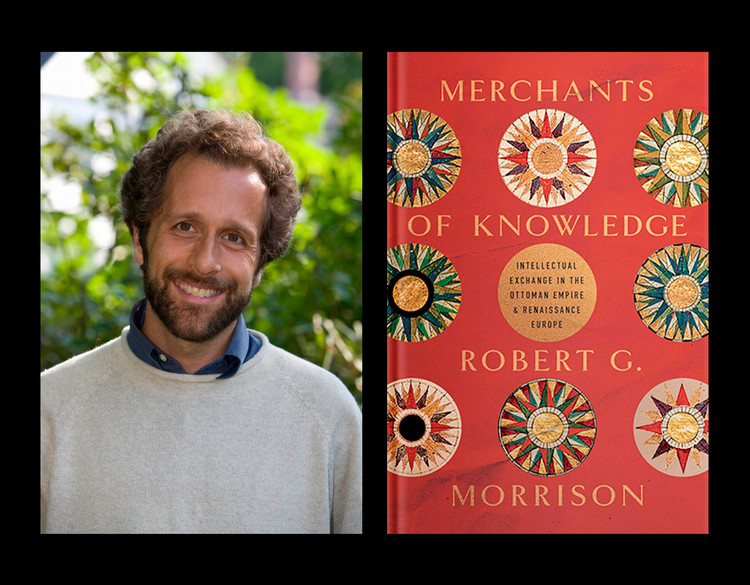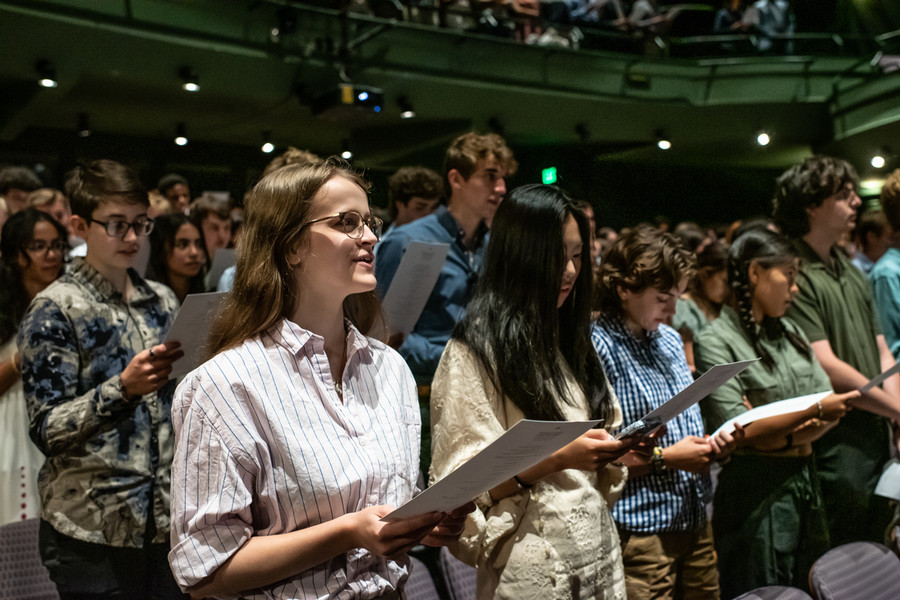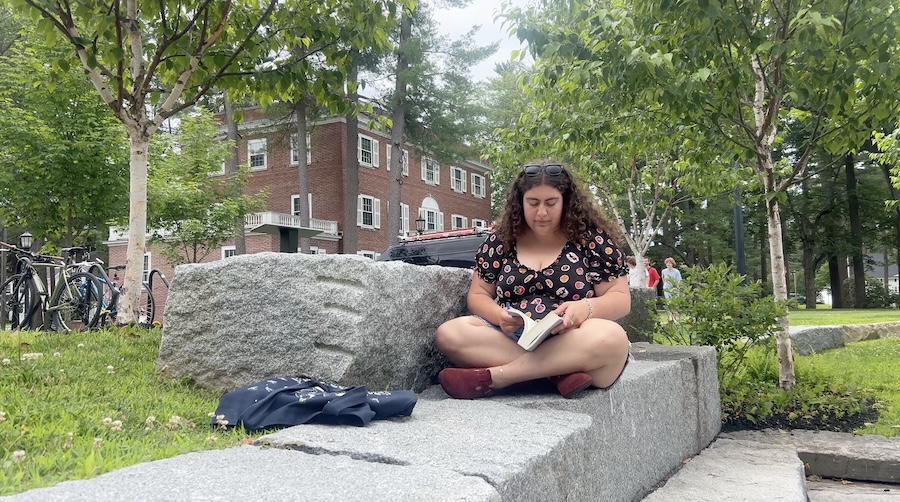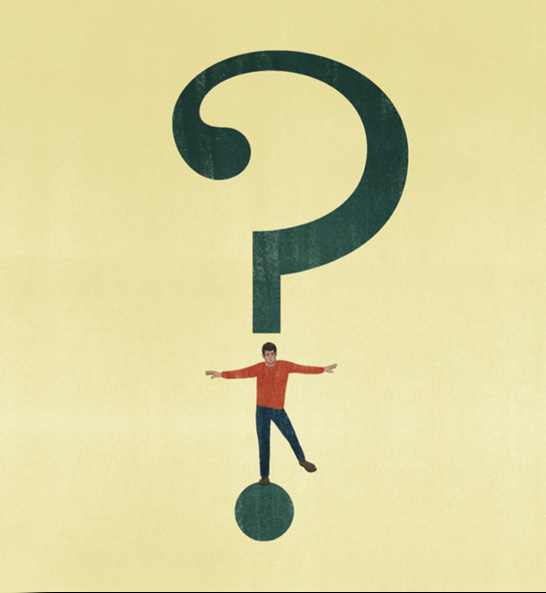Intersections of History and Faith
By Bowdoin MagazineDavid D. Daniels III ’76, who earned his doctorate in church history, is Henry Winters Luce Professor of World Christianity at McCormick Theological Seminary in Chicago, where he has been on the faculty since 1987.
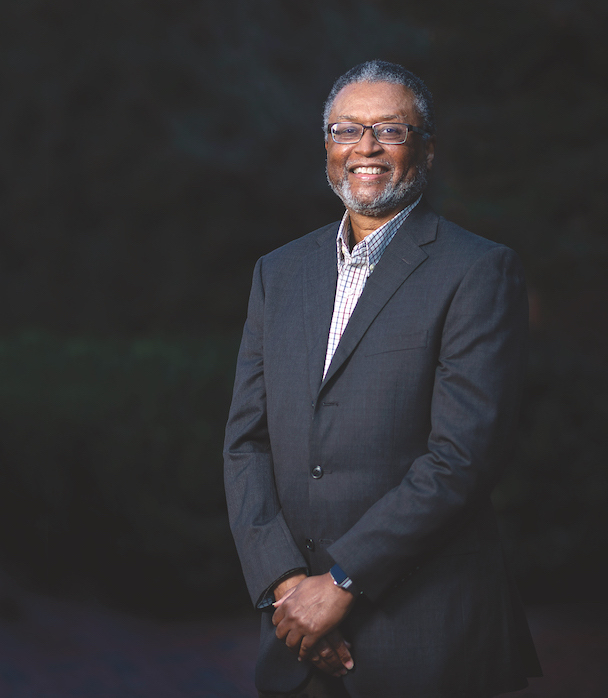
As a professor of church history, what is the focus of your scholarship and your teaching?
I occupy a chair in World Christianity, and so I see myself now within this frame of work of World Christianity. Within that, I focus on a couple things. One is the US Black church as both a national and global phenomenon. Second, Global Pentecostalism, and then third, African Christians in sixteenth century Europe. So those are the three ways that I enter into the discussion about World Christianity.
Many people think that Europeans encounter Africans when they go to Africa, not realizing, according to some scholars, that there are somewhere between 100,000 to 200,000 Africans who live in Europe in the sixteenth century. The majority are in Portugal and Spain, but there are others in Italy, in Great Britain, in the Netherlands. So, some of your early seafaring Europeans who are navigating the world already run into Africans in their hometowns, or in their capital cities or major places.
For instance, when William Shakespeare writes about Othello, he doesn't have to imagine what an African looks like, or maybe what an African Muslim looks like. There are some that live in the West End of London where he lives. So, it shifts our focus to: Number one, not being seen. Europeans going to Africa to meet Africans, but they're already there; number two, they're interacting. They're living together, they're working together. These Africans, while the majority are similar to Europeans, being of a peasant class, there are some that are not. There are some that are priests, there are some that are poets, some that are painters, there are some that are professors.
Now again, the average African Christian is like the average European Christian at that time—they're peasants. They're of the working classes. But the fact that this elite group exists totally changes, for me, our image of what the church might have looked like in Europe. Popes are interacting with these African Christians—bishops are, monarchs are, others are—so, elite circles. Scholars are also interacting with them and, therefore, Erasmus knows about African Christians in Europe, Martin Luther knows about them in Europe, others do, too. We have this notion of Europe being all white, and that it only becomes multiracial after World War II, and it’s really before that. This pushes it back to the sixteenth century and, therefore, our discussion of both the Renaissance and the Reformation might need to be one that has this broader view of who actually is living in Europe in the sixteenth century and who is actually being engaged in the sixteenth century, and what kind of—what we would now call intercultural—exchanges might actually be going on.
Did we just not learn about that in school because of who wrote the history books?
No. When you were in school, that was not an emerging consensus. Things are siloed. There's this discipline that is, maybe, twenty years old that would be about Africans in Europe even earlier than the sixteenth century—I just happen to focus on sixteenth century—and people are studying that. There was one book that was called No Blacks in the Union Jack, describing the history of Africans within what becomes Great Britain going back to the Medieval period, and even before.
Even now, things are still siloed. Musical scholars have embraced [the notion of Africans in Europe] in music studies of the sixteenth century. People have written about Afro-Portuguese folk singer by the name of Vicente Lusitano—but it's music studies. Even though he's a Roman Catholic priest, he didn't show up in religious studies. I'm part of a group that's trying to take something that has been siloed in music of the sixteenth century [and intersect it]—since he's a priest, he makes a realistic topic within religious studies. He also deals with sacred music, and he intersects with the folks of the time and gives a major presentation at the Sistine Chapel. However, it was only music style that was focused on sixteenth century I'm part of a group that's trying to migrate the study of him into religious studies, and in particular into Reformation studies. And there are other historical people that we seek to do this with as we understand them better. Even if you took a sixteenth-century course today at a place like Bowdoin or Harvard or Oxford, you might not hear African Christians in the sixteenth century because the lenses are still opening to this wider set of studies.
It's still an emerging scholarly area?
Yes, for instance, the people in music picked up Vicente Lusitano in the 1970s, so there’s been fifty years of study of him within music. The lens is widening, partly because of our interest in multiculturalism, our interest in global phenomena, our interest in cross-culture exchanges. Now people outside of music are interested, but it was there all along; it could have easily been done.
You're also teaching classes on those subjects?
Yes, for instance, I teach a survey class on the history of Christianity from 1453 to the present. It's a multi-continental history. When I was in seminary, the text we would have used to deal with that period would have only focused on [inaudible 00:09:42] ????. Then after they explored Europe about late fifteenth and in the sixteenth and seventeenth century, then they might have widened the lens to focus on North America. Then if it was a "global text," the last chapter would have been on missions around the world. What I do in my teaching is to show that the church is multi-continental, not only from the beginning, but also still in the sixteenth century. My students will learn not only about what's happening in Europe with a Martin Luther or a John Calvin or Erasmus, for instance, or Teresa of Avila, but they will also learn about King Afonso of the Congo, and they will also learn about others within Asia and then the Americas. They're getting a wider lens on how to talk about this period in order to show that, again, this narrative of how the church goes from “the West to the rest” is not historically accurate.
When you were at Bowdoin, you studied both economics and religion. How do you see those two areas intersecting?
When I was at Bowdoin, you could be a double major; I'm not sure if that's still true now. One reason you could be a double major is because there weren't any general distribution requirements. You just had to take your set number of courses to graduate and then the course in your major. That leaves a lot of space to do other things, and I entered Bowdoin interested in economics. I had taken an economics class in eleventh grade. I thought, at that time, that I wanted to be an economist.
While I was at Bowdoin, I took a religion class my second semester of freshman year, and I realized, "I'm interested in these religious courses." Bill Geoghegan was one of the professors who was there then. Burke Long was also there. I realized I liked these classes, and I really was torn, because I enjoyed qualitative economics. I didn't like quantitative economics. I'm not a math cruncher. I'm not a statistics person. But, I liked the qualitative part of economics. And, within the religious studies, I liked everything. So, when I realized that I could do a double major, I thought, “Why don't I just declare a major in both?”
After I leave Bowdoin, I don't pursue a career in economics, I end up going to seminary, so moving into a religious vocation. But, it's been within the last maybe ten years of my career that I now have started to write about religion and economics. One of the essays that I published deals with the religious vision of a just economy in the thought of Martin Luther King. What he's laying out is that there's not really a need to figure out what a parity is between labor and capital, but citizenry also needs to be organized as a factor, so that citizens can then have leverage in this relationship between labor and capital. So, he comes up with the phrase "democratic economy,” moving towards a just economy. So again, as you can tell, now I'm bringing [economics and religion] together. It's on the qualitative side, I'm not crunching numbers. However, it's showing how religious thought and religious leaders have an impact on visions of the economy.
It’s come full circle for you.
It has. I [recently] had a conversation with an economist from Sweden. He was the first economist that I sat down to talk to since my Bowdoin days. I'm hoping to be in more conversation with him, so that I can continue to figure out how to bring these two [subjects] in conversation, and not really do it in a simplistic way, but do it in a way that maybe adds a conversation—not only at religious studies, but maybe even a conversation to people in economic studies.
You've touched on this, talking about the double major, but what inspired you to follow religious studies?
I grew up in church, and faith was very key to me and my development as a child, as a teenager, as a student at Bowdoin. I was still actively participating within church at Bowdoin. There was a group called the Bowdoin Christian Fellowship, so I was a part of that, which met sometimes in the week. Then I went to First Parish, which was the United Church of Christ Congregation, right on the edge of Bowdoin, but also visited a church in Portland and a church in Lewiston.
So, I was very active. A small group of us organized what was called the Bowdoin Gospel Choir, and we did that sometime around '74, maybe. We sung at Bowdoin, we also sung in the area, we sung at Portland, and some other places traveling around. Religious studies was always key to me, so one of my discernments as a college student was, “Is this something that would just shape me as a layperson? Or is this something that will shape me in my vocation? Will it shape me merely as a possible clergy person, or as teaching?” Even at Bowdoin, after I realized I was not going to become an economist, I wrestled with whether I wanted to either teach history of Christianity, or whether I wanted to be a Bible scholar.
After seminary, I taught in the religion department at a prep school called Phillips Exeter Academy. It was there that I decided that I wanted to teach at a seminary, and that's when I went into a PhD program and I ended up selecting church history.
What is your favorite, your most satisfying aspect of your role at McCormick?
I think it's the classroom, and the way McCormick describes it is that a classroom is a community of cold learners. A number of our classes are seminar style so, it's not merely so-called “dispensing” knowledge. I'm learning from them, and they're helping me both clarify questions that I'm struggling with, as well as providing insight in how to answer the question. They have questions I never thought of, and sometimes a question becomes a topic that I end up pursuing in research.
I really enjoy teaching—right from what I taught in Sunday school as a teenager. I loved teaching at Phillips Exeter, teaching young people between the ages of fourteen and eighteen. That is such a critical period in their lives and to be able to explore, in this case, religious and moral and other kinds of questions with them. I still get excited about having that opportunity. And, at McCormick, it's just continued. So that's the part that has been most satisfying, and the favorite part. In all the roles of being a faculty person, an advisor, community leader, institutional person, teaching, a person who represents the seminary, teaching is the one that I would keep and all the others could disappear.
Do you have pastoral roles?
Yes, I belong to a Pentecostal church, which is African-American-led—though we exist in 100 countries— called the Church of God and Christ. In 2014, I was consecrated a bishop in that church, so I have a role that I play as a volunteer related to education for the denomination. I also play a similar kind of role in what Catholics would call a diocese—we call them a jurisdiction. But, I don't pastor and I don't have a part-time remunerative role; all my roles from the church at this point are volunteer. My only full-time position is in the seminary.
What aspect of church history or what is an aspect of church history that you see as particularly relevant now?
One of the projects that I'm dealing with that relates to African Christians in the sixteenth and seventeenth centuries asks, “What did societies in the West look like prior to the rise of modern racism? How did people interrelate? How was difference conceived and constructed and interpreted? How did people interact with each other?” [Many scholars] see modern racism emerging sometime in the late seventeenth century, maybe even early eighteenth century. Modern racism has this intersection both of child slavery, emerging capitalism, imperialism, and then philosophies with hierarchies of race, and then eventually pseudoscience around race. Modern racism is constructed by the intersection of those systems. Prior to that, what one sees is that, for instance, within Europe of the sixteenth century, two African, or what we'll call Sub-Saharan Africans, become consecrated bishops of the Roman Catholic church. One is from the Congo, his name is Enrique—his father was the King of Congo, King Afonso, in the early 1500s—and he was consecrated around 1520. Then from Ethiopia, there's a convert from the Ethiopian Orthodox Church of Catholicism around the 1540s or 1550s, Johannes Baptiste. He's consecrated a Roman Catholic bishop to the Ethiopian community in Cyprus, but he's also the papal ambassador or the papal nuncio to the orthodox community. As far as historians know, you won't see another person of African descent consecrated as a bishop in the Roman Catholic church until you get to maybe the late nineteenth century—from the continent of Africa, not until you get to the early twentieth century.
Why is there the gap? The gap is because of modern racism. What's key for me when I often talk about this is that maybe one of the reasons we cannot envision a society after racism is because of the fact we cannot even envision what the world looked like before modern racism. Our imagination is impoverished, both our historical imagination and the resources that we have to be able to look at the past in order to be able to envision what the future might look like.
Continuing with church history, is there a particular development that you see as really important over the past 100 years?
One of the other areas that I work in is the history of the US Black church, how the US Black church is both a national phenomenon and a global phenomenon. There are US-based Black denominations, such as mine, that have congregations in 100 countries—in Europe, Africa, South America, and Asia. So, the Christianity that people encounter in some parts of the world is not merely a \white Christianity coming from North America or Europe; they are also encountering an African-American Christianity in certain places.
That changes this notion of how one understands Christianity globally, but it also changes the notion of the trajectories that are shaping global Christianity. One area that I have not studied, but that I'm very interested in, is the role of Black gospel music in places like Brazil. There have been some scholars who have noted of how Black gospel music helps shape the identity of Afro-Brazilians. But not only is Black gospel music sung in Brazil, it's sung in Sweden, it's sung in Japan, it's sung in other different countries. Some of them are sung in relationship to US African-American churches or Black churches in the US, with headquarters in the US that have branches in these other places. Brazil is a place like that; Japan is a place like that. But others are happening totally independently. When one knows that the Church of God and Christ, the African Methodist Episcopal Church, the African Methodist Episcopal Church Zion, the Pentecostalism of the World are US-based churches headed by African-Americans in the US, but they have congregations in various continents, it changes our vision of not only the role that they're having within American society, but the role that African-American churches are having within the global arena.
Looking back 100 years, now looking ahead 100 years, what do you see as possibly the most important development down the road?
One of the other areas that I am pondering—and I've done a little bit of writing on it, but not anything developed in article form—is picking up from a scholar by the name of Jürgen Habermas that we are in a post-secular society. That religious institutions and secular institutions will find a way of coexisting, and recognizing each other's value and find a way of mutually supporting each other, because of the goods and good that religious institutions and secular institutions produce in a society. How are we going to get there, where either religion isn't trying to be triumphalist or secular institutions aren't trying be triumphalist, but they're recognizing the mutual value of a coexistence? I think that's going to be the most interesting development, especially in the light of radical forms of religion that have been seen as perpetrators of violence. This post-secular society—and clearly, we'll have to find another phrase for that—but whatever this society looks like that has this coexistence of religious and secular institutions that recognize each other's mutual value. That's going to be very exciting.
If it doesn't happen, there's also going to be a very disheartening set of research, but research on why that project failed. The project will be different in different places, because as you know, the French understand what it means to be a society differently than what the US understands, which is different than what South Africa understands what it means to be a society, and different than what Malaysia understands, or Indonesia. Everyone will come at it differently, but all the societies that I mentioned have secular institutions and religious institutions, and they've all come to different places on how they are able to coexist and mutually support each other. and, as you know, some of them don't mutually support each other.
If you had one last thing above all to get across to your students, what would that be?
I often, especially in a survey class, briefly talk about what I call the fragility of progress. That we need to realize that social progress that religion had a role in bringing about is very fragile, and just as we have historical progress, we're going to have historical regress. We need to be aware of that. Related to that is that I tell students that I'm not a historical determinist—I do not think that something had to happen. I think something happens because of the role of human agency in bringing it about. I hope that helps my students then not be historical determinists themselves, and therefore, not feel that they must just resign themselves to fate. We can be agents of social change, and congregations can be agents of social change in our society.
Do you still sing? What other things do you like to do in your spare time?
Music is still important to me, and different kinds of music, but not as widespread as possibly could be. I also like to go to museums. I enjoyed going to museums as a teenager, and my wife and I, we raised our kids to visit museums. Museums serve as windows to other worlds for me—to the past and to ways of viewing and interpreting. I don't go to museums to be studious about it; I go and stop when something strikes my attention. I can go through a gallery and just be out in five minutes, or I can be there for thirty minutes. I make the museum experience an adventure.
How has the current health pandemic affected you and your work?
Two fronts: One is teaching. My school happens to be part of the group that decided to close all in-person activity, and everything is online. Our teaching, our committee meetings, our advising, everything's online. I think I have done as well as I can at this, but I miss the in-person contact. I miss just being able to sit next to someone and shake their hand. So, that's been hard. The second front is on the research side. There are just certain archives at libraries that I not only lack access to, because there's no in-person activity, but they're overwhelmed, so they can't even respond to inquiries.
Our library has worked very hard. There was this essay I was trying to get out of Germany and it took five months, I think. I eventually had my libraries looking for it, and I had two scholars in Germany looking for it.
Do you think that COVID-19 is going to have a lasting impact on churches and places of worship and how people worship?
I do. One study says one-fifth of churches in the US will close, either during or by the end of this pandemic. Partly because of finances or that their people won't come back after, in some cases, having not gathered for possibly twelve to fifteen months. It's unclear when we'll be able to reopen and people can come back in full in the US. Even if the number's off, even if it's not one-fifth, it still could be one-sixth.
But one of the upticks is this virtual education. A number of congregations had not made their religious services available to people who did not come through their doors. That's been absolutely amazing. Just to give an example from some of the people that I've worked with. This one congregation wanted me to do an adult ed event, and it was during the middle of the week, like a Tuesday. They normally would see maybe 100 people that would come out of a congregation of about 1,000. But for this virtual adult ed, at the viewing time, there 1,200 people viewing. Then, within a week [because it was recorded,] the number goes over 2,000. [That many] people would never have gathered to come to this adult ed in person. The chance for people to be participating within prayer vigils, adult education, youth activities, and other kinds of activities—I'm not sure when this is over that we will just close all that down and close down the equipment, or whether people realize there's not only a service that's provided, but you also could possibly make a difference in people's lives.
There's another organization that a group of us helped start about three years ago, I think it is now, so we really had no constituency. We're hoping to be a transatlantic group that includes people in Africa, Europe, South America, and North America. If we had 100 people in the group, it's probably a lot. We had one event in 2019. Our event in March 2020, of course, was canceled. We put on our first major event, virtually, this past July and we had over 20,000 people viewing. We thought maybe that was a fluke, so we put on another event in October, had another 20,000 people viewing. This is 20,000 over a week, over seven days. We were a new organization without necessarily a constituency, without a large membership group. Who would have 20,000 people listening to a lecture on global Pentecostalism? So, it's this reach, it's this possible influence that's getting people in conversation that this pandemic opened our eyes up to the opportunity. But possibly, conversely, people whose lives would have been so busy before, now have some time to do things, because they're sheltering in place.
Do you have any advice that you might give to an incoming Bowdoin student? Or any incoming college student for that matter.
I love the question. Number one, Bowdoin is just a beautiful campus and, obviously, an idyllic part of it is being where it is in Maine, [so I would encourage them to explore]. I'm also a lover of small colleges—I would encourage them to follow their curiosity, but not follow their curiosity by themselves, not follow it in isolation. It was at Bowdoin that I took my first independent study. I encourage my students at McCormick to take the opportunity and do an independent study. Follow their curiosity by finding a faculty person to be a cold learner with them. It might be in the faculty person's expertise, or not, but the faculty person might just be generous to say, "I'm going to explore this with you, realizing that I'm not an expert in this, but again, I want to encourage you in your curiosity." That can be across the board. I come out of humanities, but that could in art, that could be in music, that could be in dance, creative writing. But the point is that students follow their curiosity.
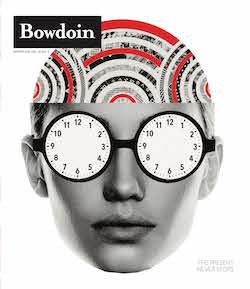 This story first appeared in the Winter 2021 issue of Bowdoin Magazine. Manage your subscription and see other stories from the magazine on the Bowdoin Magazine website.
This story first appeared in the Winter 2021 issue of Bowdoin Magazine. Manage your subscription and see other stories from the magazine on the Bowdoin Magazine website.
